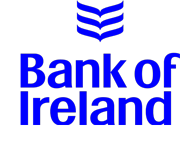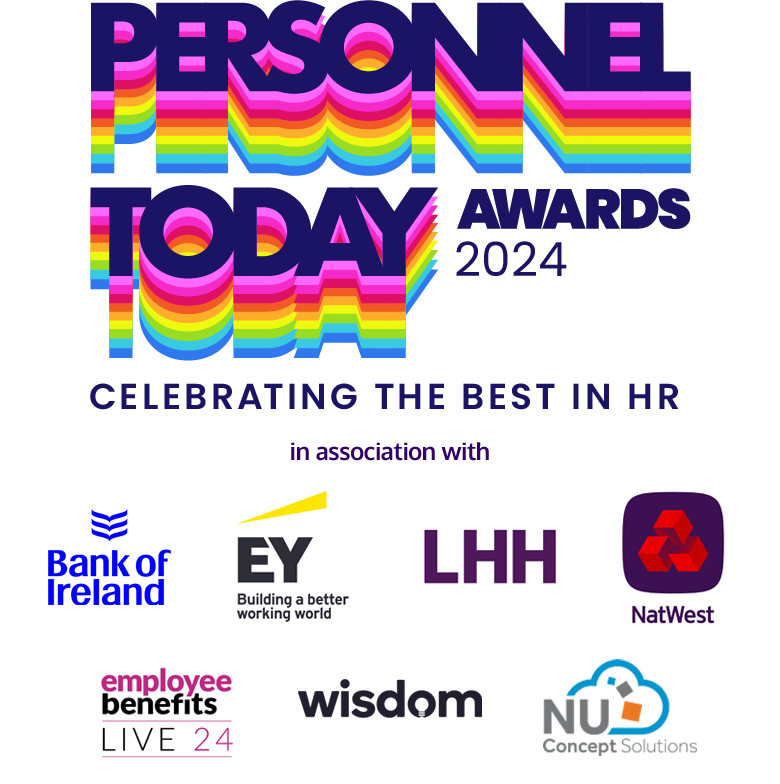 Centrica with Benefex was crowned Health and Wellbeing winner because the judges saw that its wellbeing programme had provided notable results. An accessible approach, including wellbeing vans for fieldworkers, stood out, along with senior management’s strong support. We look at their winning entry and those of our other excellent finalists. This year the category was sponsored by Bank of Ireland.
Centrica with Benefex was crowned Health and Wellbeing winner because the judges saw that its wellbeing programme had provided notable results. An accessible approach, including wellbeing vans for fieldworkers, stood out, along with senior management’s strong support. We look at their winning entry and those of our other excellent finalists. This year the category was sponsored by Bank of Ireland.
WINNER
Centrica in partnership with Benefex
Centrica is an international energy and services company with 20,000 employees worldwide, including 7,000 engineers working on the road. The average employee age is 37, with a male-to-female ratio of 30% to 70%. In 2023, Centrica focused on improving employee wellbeing through a proactive strategy. This included expanding its existing wellbeing support by launching the OneHub Wellbeing app, offering a more comprehensive range of physical, emotional, and financial support. The app is accessible to all employees, including British Gas engineers, and includes features like yoga, nutritional advice, and 24/7 GP access.
Centrica introduced the ‘Pathway to Parenthood’ programme, supporting employees with fertility and parenting challenges by providing £15,000 towards treatments like IVF and adoption. To foster inclusivity, Centrica ensures that wellbeing support is available to all employees, regardless of personal circumstances. A new communication strategy included wellbeing roadshows, town halls, and talks from guest speakers.
Centrica has seen positive results, with 79% of employees signing up to the app, 4,000 wellbeing tests completed, and a 12% increase in employee mood. Over 19,000 employees have joined the company’s healthcare plan, reducing absence and improving work-life balance. Employee retention increased by 12%, and those who engaged with the healthcare services returned to work quicker than the standard rate.
RUNNERS-UP
Personnel Today Awards
All our 2024 winners revealed
View the 2024 photo gallery
The Personnel Today Awards 2025 open for entries around Easter
Sign up to keep updated
Bright Horizons Family Solutions
In 2022, over a third of long-term sickness cases at Bright Horizons were linked to mental health issues, a 40% increase from the previous year. Additionally, nearly a third of staff expressed concerns about emotional wellbeing. With staff retention below the company’s 80% target, Bright Horizons recognised the need to enhance mental health support in 2023.
After reviewing feedback and data, the company improved its emotional wellbeing programme. This included upgrading to a trauma counselling service with 24/7 access and introducing the THRIVE wellbeing app, offering mental health assessments, cognitive behavioural therapy, and physical wellbeing resources. The company also launched a tailored wellbeing ambassador programme to support staff through wellbeing conversations, training, and resources.
The results have been positive, with significant reductions in depression and anxiety among staff using the THRIVE app. There was a 70% drop in severe depression cases and a 73% fall in severe anxiety cases. Staff now report improved mental health, and the 2023 Great Place to Work survey showed a 4% rise in employees who agreed that their workplace was psychologically healthy. There was also a 10% reduction in turnover and a 20% drop in agency spend, leading to greater team stability. These initiatives have contributed to a healthier work environment and better quality of care for the children Bright Horizons supports.
Currys
In 2020, Currys identified employee wellbeing as a top priority, especially after feedback from its engagement survey. The pandemic accelerated its efforts, turning a previously unstructured approach into a strategic one, guided by feedback from employee forums. These forums allowed employees to highlight the issues affecting their wellbeing, enabling Currys to tailor its strategy across different departments and roles.
A key initiative was the creation of the Wellbeing Corner, a central platform for all wellbeing resources, which has been widely used by employees. Currys also integrated wellbeing check-ins into performance reviews and trained 450 mental health first aiders in 2021. In addition, it provided all employees with a subscription to the Calm app as a thank you for their hard work during a challenging year.
In 2022, Currys launched a proactive wellbeing strategy focusing on prevention, in partnership with Champion Health. This partnership gave employees and their families access to personalised wellbeing plans. Financial wellbeing was also addressed through a collaboration with Salary Finance, offering employees financial education and affordable loans.
The company has also developed a number of colleague and manager guides to support difficult conversations such as dealing with bereavement and how to support a colleague in crisis.
The results have been positive, with improved engagement and wellbeing scores. Currys continues to evolve its approach, ensuring wellbeing support is inclusive and tailored to individual needs, with new policies introduced to support IVF, gender reassignment, and menopause, among other areas.
Dishoom
Dishoom considers the wellbeing of its team to be pivotal in its operations. Following the challenges of recent years, Dishoom has implemented several wellbeing initiatives. These include the Yulife app, which promotes physical activity through rewards, virtual GP services for easy healthcare access, and the Meditopia app for stress management. The employee assistance programme also provides confidential support for personal and professional issues.
Mental health support is a top priority, with all managers trained in mental health first aid and regular wellbeing sessions offered. Physical wellbeing is supported through monthly fitness classes and bike safety checks. Dishoom also addresses financial health by providing financial planning sessions, enhanced payslips, and tools like PayCaptain for managing finances.
The impact of these initiatives is clear: employee satisfaction has risen, with 89% feeling more cared for and 88% reporting a better work-life balance. Lower staff turnover rates have also been recorded. Dishoom’s holistic approach to mental, physical, and financial wellbeing has strengthened company culture, improved retention, and boosted overall productivity. Testimonials from team members show the positive effects of these initiatives, making Dishoom one of the top companies to work for in the UK.
Pernod Ricard in partnership with Unmind
Pernod Ricard UK (PRUK) has long focused on employee wellbeing, starting in 2011 with physical wellbeing initiatives. During Covid, the firm shifted its focus to mental wellbeing, as employees faced difficulties balancing work and home life. To address this, it launched a comprehensive wellbeing programme, including wellness sessions, resilience training, and expert talks. However, employee feedback in 2021 revealed ongoing mental health challenges, prompting PRUK to strengthen its support.
To meet these needs, the business partnered with Unmind, a platform offering 1:1 counselling, talking therapy, meditation, and stress-relief resources. The platform was implemented swiftly, with accessible tools like single sign-on for easy use. PRUK also launched a wellbeing festival to promote mental health awareness.
The Unmind partnership has been a success, with 36% of employees engaging with the platform in the first 90 days. Employee satisfaction scores showed a significant improvement, with many praising the initiative. Over time, PRUK increased the number of therapy sessions and introduced couples counselling, showing its long-term commitment to mental health.
The initiative has boosted employee engagement and wellbeing, with scores for employer interest in wellbeing rising above the industry average. The success of the Unmind programme has led to its adoption by other Pernod Ricard locations worldwide, ensuring a lasting focus on mental health across the company.
South Western Railway
Given the challenges posed by the cost-of-living crisis and changes in the industry, SWR has placed a strong emphasis on its employees’ resilience and wellbeing. Its three-year strategic plan includes a commitment to supporting all staff through a wellbeing strategy, which aims to increase knowledge about mental health, develop trauma-related strategies, and make wellbeing support accessible to everyone.
Over the past year, SWR introduced several initiatives. Trauma risk management (TRiM) training was rolled out to help staff cope with traumatic events they might experience at work. This training equips employees with tools to support their mental health and recognise signs of distress in others. Pregnancy loss awareness and support were also addressed through a new policy that offers support to those affected by miscarriage, stillbirth, or other pregnancy-related issues.
SWR introduced a workforce safeguarding coordinator to protect staff from rising incidents of verbal and physical abuse. Additionally, they installed defibrillators across 150 stations to aid in cardiac emergencies. Since completing their installation there have been over 100 instances where their locations have been accessed by emergency call handlers. During April,
its defibrillators at Gillingham and Bournemouth stations were deployed. Thanks to the installation of this life-saving equipment and quick actions of the colleagues involved, lives have been saved.
The company also expanded its ActiveHub partnership, introducing football tournaments and guided walks to improve both physical and mental health. These initiatives have been well received, with the defibrillators and TRiM training already making a significant impact across the company.
Zopa Bank
The wellbeing of Zopa’s employees, known as Zopians, is central to its success. To ensure Zopians feel supported, Zopa introduced a new people experience function, which spent 18 months redesigning the employee experience. This overhaul included enhanced benefits supporting life events, flexibility, wellbeing, financial health, and personal growth. One standout benefit was the option to work abroad for 120 days, which gained media attention.
Zopa took several actions to support staff during the cost-of-living crisis, such as raising entry-level wages and offering cash bonuses to lower-salaried employees. It also introduced popular health schemes and counselling sessions. Zopa helped employees improve their financial health with initiatives like income protection, mortgage advice, and subsidised will writing.
The company emphasised creating a sense of belonging by incorporating non-business topics into company meetings and offering training on issues like neurodiversity and menopause. It also introduced practical measures, like training menopause advocates. Much like Zopa’s Mental Health First Aiders, the advocates are a first port of call for anyone struggling with symptoms of menopause. They invite specialists to run sessions, open to all, on different topics, including nutrition and how to manage symptoms.
Zopa’s efforts have paid off, with reduced staff turnover, increased tenure, and high employee engagement scores. It continues to invest in its employees, with positive results in both workplace culture and financial backing from investors.
Sign up to our weekly round-up of HR news and guidance
Receive the Personnel Today Direct e-newsletter every Wednesday


